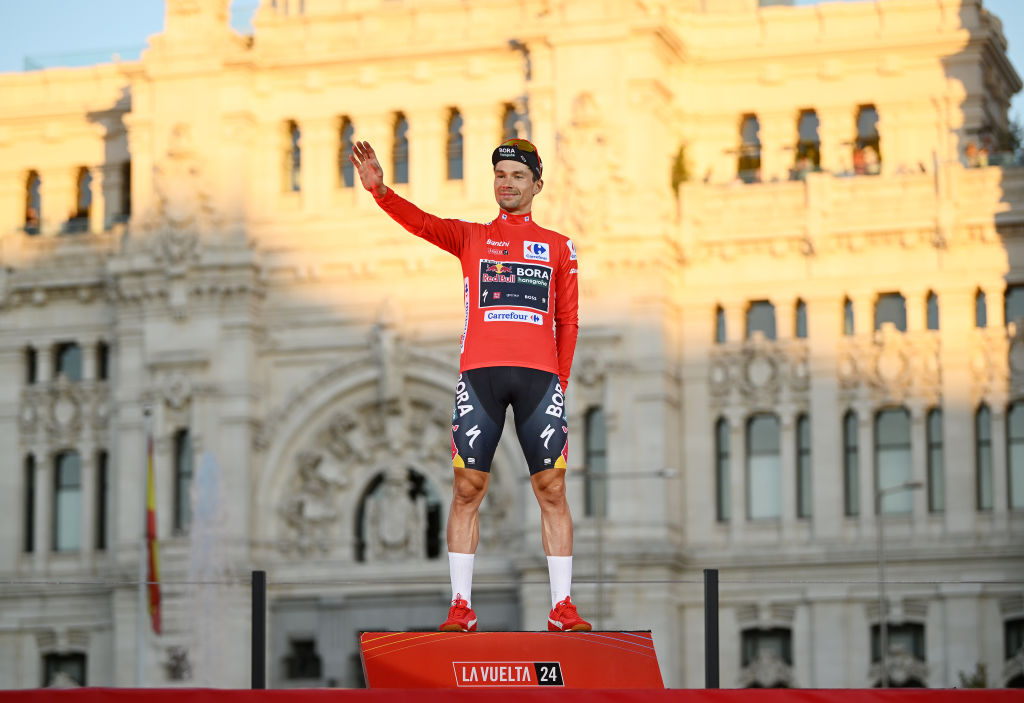
Vuelta a España organisers Unipublic have denied Spanish media reports that an agreement is now in place for the race to make its long-awaited return to the Canary Islands in 2026.
The Vuelta last had stages in the Canary Islands, an archipelago more than 1,400 kilometres distant from the Spanish mainland and in a different time zone, back in 1988.
The latest reports from local media claimed that in 2026 the Vuelta would end its final week with four stages in the Canary Islands.
However, an organisation source in Unipublic has told Cyclingnews that while the project to bring the race back to the Canary Islands at some point in the future is ongoing, nothing has yet been fully agreed or confirmed.
"This is news that repeatedly crops up, it's something we've been working on for a long time, and it's a great project for us. But for now, no definitive agreement has been reached," the source said.
"When we have some news to communicate, we'll do it through the official channels."
The Vuelta's starting point for 2026 is already confirmed as being Monaco, which will be its third foreign 'Gran Partida', after Lisbon in 2024, and Italy in 2025 this August, in as many years. On both occasions, though, the race finish was or will be in Madrid.
Rumours that the Vuelta will make its return to the Canaries have been an ongoing staple of the Spanish media for decades since the race last visited. This time round, though, there are more details than usual, with Canarias7 saying that there would be a rest day in the third week and the stages would be divided between the two main islands, Gran Canaria and Tenerife.
Atlántico Hoy added that there could be summit finishes on two very tough mountain ascents, one to Teide - regularly used by teams for altitude training - and the other on Pico de las Nieves.
In the Vuelta's only other visit to the islands in April 1988, the race opened up in Tenerife with a bizarre format of a two-rider time trial, followed by a normal road stage.
The race then travelled by ferry and plane for another stage on Gran Canaria, a team time trial - which was affected both by strong winds, and by tacks and nails being strewn on the road, reportedly as an act of protest by pro-separatist groups - before heading back to mainland Spain. That year, the race was won overall by Ireland's Sean Kelly.







